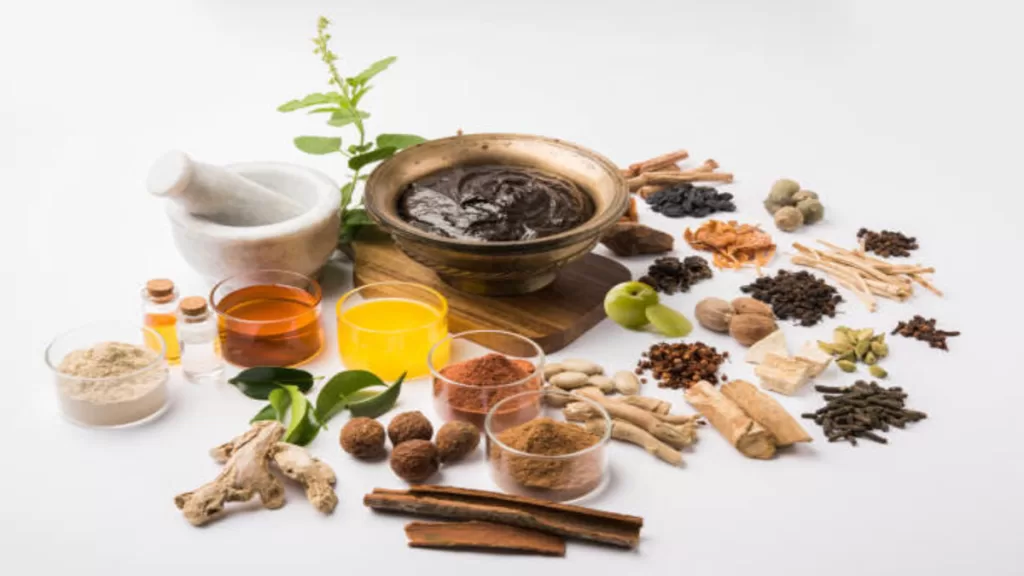Stress Management Package: Ayurveda Experience against stress and Burnout
Author Bio:
With 38 years of dedicated service at “The Himalaya Drug Company,” [pioneers in drug cultivation and research since 1930] a leading international Ayurvedic Company, the author retired as the National Sales Manager in October 2019. Throughout his tenure, he played a key role in promoting Ayurveda and its research within the Medical Fraternity. He is also the author of the book “38 Years of Selling,” sharing his valuable experience in selling well-researched Ayurveda products. Having dedicated his life’s work to the world of Ayurveda, the author continues to inspire and educate others about the profound healing potential of this ancient holistic healing system. Through his writings and experiences, he aims to foster a deeper understanding of Ayurveda’s principles and their positive impact on overall well-being.
“Explore Ayurveda’s holistic approach to stress relief and wellness. Discover ancient techniques to embrace tranquility and achieve serenity.”
“Learn how Ayurveda can transform your life, offering effective remedies for stress. Find your path to tranquility and inner balance with the Ayurveda-experience.”
I. Introduction
A. The allure of Ayurveda Experience: A holistic approach to well-being

In today’s fast-paced world, where stress and ailments have become common occurrences, many individuals are seeking alternative and holistic approaches to improve their overall well-being. Ayurveda, an ancient Indian system of medicine, has gained significant popularity for its holistic approach to health and wellness. Rooted in the belief that balance is the key to a healthy and harmonious life, Ayurveda offers a comprehensive system that addresses the mind, body, and spirit.
B. My personal journey towards Ayurveda
Like many others, my personal journey towards Ayurveda began with a quest for a more balanced and fulfilling life. Frustrated by the limitations of conventional medicine and seeking a deeper understanding of my own health, I embarked on a path to explore alternative healing modalities. It was during this search that I discovered Ayurveda and its profound wisdom. Intrigued by its holistic principles and natural remedies, I delved deeper into the world of Ayurveda, eager to experience its transformative potential first-hand.
II. Understanding Ayurveda: Ancient Wisdom for Modern Living
A. The principles of Ayurveda: Balancing mind, body, and spirit
At the core of Ayurveda lies the belief that each individual is unique and has a specific constitution, or “dosha.” The doshas, known as Vata, Pitta, and Kapha, represent the elemental energies that govern our physical and mental attributes. Ayurveda aims to maintain the balance of these doshas to promote optimal health and well-being.
The principles of Ayurveda emphasize the importance of a balanced lifestyle, including proper nutrition, regular exercise, adequate rest, and mindfulness practices. By aligning our daily routines and habits with the natural rhythms of the universe, Ayurveda seeks to restore harmony and equilibrium within our being.

B. Unveiling the doshas: Discovering your unique constitution
To fully embrace the benefits of Ayurveda, it is crucial to understand your unique constitution and the predominant doshas that influence your physical and mental characteristics. By identifying your dosha, you can make informed choices regarding diet, lifestyle, and therapies that will support your individual well-being.
The Vata dosha is associated with the elements of air and ether, governing movement, creativity, and vitality. Pitta, representing fire and water, is responsible for digestion, metabolism, and intellect. Kapha, composed of earth and water, influences stability, strength, and emotional well-being.

C. Ayurvedic treatments: A comprehensive approach to healing
Ayurvedic treatments offer a comprehensive approach to healing that encompasses various modalities, including herbal remedies, dietary modifications, body therapies, meditation, and yoga. Ayurvedic practitioners customize treatment plans based on an individual’s dosha and specific health concerns.
Herbal remedies play a significant role in Ayurvedic treatments, utilizing the healing properties of plants to restore balance and address specific ailments. These remedies are carefully selected based on their qualities, tastes, and effects on the doshas.
Body therapies, such as Abhyanga (Ayurvedic massage) and Shirodhara (oil treatment for the forehead), aim to relax the body, calm the mind, and improve overall well-being. Meditation and yoga, integral parts of Ayurvedic practice, help cultivate mindfulness, promote inner balance, and enhance vitality.

III. An Ayurveda Experience: A Transformative One
A. Setting the stage: Choosing the right retreat for the Ayurveda experience
Embarking on an Ayurveda retreat can be a life-changing experience, providing an opportunity to immerse oneself in the healing traditions of this ancient science. When choosing a retreat, it is essential to consider factors such as the location, the expertise of the practitioners, the authenticity of the treatments, and the overall ambiance.
A well-designed Ayurveda retreat will offer a serene and nurturing environment, allowing individuals to disconnect from their daily routines and focus on self-care. It should provide a range of Ayurvedic therapies, educational sessions, and personalized guidance to support each participant’s unique healing journey.

B. Immersion in Ayurvedic lifestyle: Diet, meditation, and yoga
During an Ayurveda retreat, participants are encouraged to embrace an Ayurvedic lifestyle that encompasses diet, meditation, and yoga. The retreat’s culinary offerings are typically tailored to individual doshas, ensuring that each meal is nourishing and supportive of the body’s needs.
Meditation and yoga form the pillars of Ayurvedic practice, helping to calm the mind, reduce stress, and promote self-awareness. Guided meditation sessions and daily yoga classes are integral parts of the retreat experience, providing participants with tools to cultivate mindfulness, enhance flexibility, and strengthen the mind-body connection.
C. The power of Panchakarma: Detoxifying the body and mind
Panchakarma, a transformative Ayurvedic therapy, is often a highlight of an Ayurveda retreat. This intensive detoxification process aims to eliminate toxins from the body and restore balance to the doshas. Panchakarma typically involves a series of cleansing treatments, including oil massages, herbal steam baths, and specialized dietary protocols.
The power of Panchakarma lies not only in its physical cleansing effects but also in its ability to rejuvenate the mind and spirit. As the toxins are expelled from the body, participants often experience increased energy, mental clarity, and a profound sense of well-being.

IV. Reaping the Benefits: Healing and Inner Transformation
A. Restoring balance: Addressing specific health concerns with Ayurveda experience
One of the significant benefits of Ayurveda is its ability to address specific health concerns by identifying and treating the root cause of imbalances. Whether it’s digestive issues, stress-related ailments, or chronic conditions, Ayurvedic practitioners work closely with individuals to develop personalized treatment plans that promote healing and restore equilibrium.
By combining natural remedies, dietary adjustments, lifestyle modifications, and supportive therapies, Ayurveda offers a holistic approach to healing that goes beyond symptom management. It empowers individuals to take an active role in their well-being and make sustainable changes for long-term health.
B. Embracing self-care: Nurturing the mind and body with Ayurveda experience
Ayurveda recognizes the importance of self-care in maintaining overall well-being. Practicing self-care rituals tailored to your dosha can help nourish the mind, body, and spirit. These rituals may include self-massage with herbal oils, engaging in mindfulness practices, practicing gratitude, and creating a calming environment in your living space.
Embracing self-care not only enhances physical health but also promotes emotional balance and mental clarity. By dedicating time to nurture ourselves, we cultivate a sense of self-love and develop resilience to face the challenges of daily life.
C. Unleashing inner bliss: Rediscovering joy and vitality
One of the most profound effects of Ayurveda is its ability to unlock inner bliss and vitality. As we restore balance, release toxins, and align with our true nature, we tap into a wellspring of joy, enthusiasm, and creativity. Ayurveda helps us reconnect with our authentic selves and rediscover the inherent bliss that resides within.
Through Ayurvedic practices such as meditation, yoga, and self-care rituals, we learn to quiet the mind, release stress, and cultivate a deep sense of contentment. By nurturing our bodies with nourishing foods, herbal remedies, and rejuvenating therapies, we support optimal physical health, which in turn enhances our overall well-being and vitality.
V. Life After Ayurveda: Integrating Lessons into Daily Life
A. Sustaining the Ayurveda experience: Incorporating routines and practices
The wisdom of Ayurveda extends beyond the boundaries of an Ayurveda retreat. To truly experience the lasting benefits, it’s essential to integrate Ayurvedic principles into our daily lives. This involves adopting routines and practices that align with our dosha and promote balance.
Incorporating Ayurvedic routines, such as rising early, practicing self-care rituals, and following a mindful eating schedule, helps establish a sense of stability and consistency in our lives. By honoring the natural rhythms of the day, we harmonize our bodies with the cycles of nature, supporting optimal health and well-being.
B. Harmonizing with nature: Ayurveda’s connection to the environment
Ayurveda recognizes the profound connection between human beings and the natural world. By aligning ourselves with the elements and cycles of nature, we can optimize our well-being and cultivate a deep sense of harmony.
Spending time in nature, engaging in outdoor activities, and practicing eco-friendly habits are all ways to harmonize with our environment. Ayurveda encourages us to appreciate the healing power of nature, whether it’s through forest bathing, gardening, or simply taking mindful walks in the park.
C. Sharing the wisdom: Spreading the word and inspiring others
As we experience the transformative power of Ayurveda in our own lives, we have the opportunity to share this wisdom with others and inspire them on their own wellness journeys. By educating our communities, friends, and family about Ayurvedic principles and practices, we contribute to the collective well-being of society.
Sharing the benefits of Ayurveda can be done through conversations, workshops, writing, or even creating online content. As we become ambassadors of Ayurveda, we empower others to explore this holistic approach to well-being and discover its profound impact on their lives.
VI. Conclusion
A. Gratitude and growth: Reflecting on the Ayurveda experience
Embarking on a journey into Ayurveda is a profound and transformative experience. It is a path that encourages self-reflection, self-care, and self-discovery. As we navigate the principles and practices of Ayurveda, we develop a deeper understanding of ourselves and our unique needs.
Gratitude plays a significant role in the Ayurveda experience. We express gratitude for the wisdom of this ancient system, the guidance of experienced practitioners, and the opportunities that arise for personal growth and healing. Through Ayurveda, we cultivate a sense of appreciation for our bodies, our minds, and the interconnectedness of all aspects of our being.
B. The lasting impact: Unlocking inner bliss through Ayurveda experience
Ayurveda offers a pathway to lasting well-being by addressing the root causes of imbalances and supporting holistic healing. Through its comprehensive approach to mind, body, and spirit, Ayurveda provides us with the tools and knowledge to unlock our inner bliss and vitality.
As we integrate Ayurvedic practices into our daily lives, we cultivate a deeper connection with ourselves, nature, and the world around us. We discover the power of self-care, mindfulness, and living in alignment with our unique constitution. Ayurveda becomes a guiding light, leading us towards a life filled with balance, health, and joy.
C. Embracing a holistic approach to well-being through Ayurveda experience
In a world where quick fixes and instant gratification are often sought, Ayurveda reminds us to embrace a holistic approach to well-being. It invites us to consider the interconnectedness of our physical, mental, and spiritual aspects, emphasizing the importance of balance, harmony, and self-care.
As we navigate the complexities of modern living, Ayurveda serves as a guiding compass, offering ancient wisdom to support our journey towards optimal health and well-being. By integrating Ayurvedic principles into our lives, we embark on a transformative path that nurtures and nourishes us at the deepest level.
Embrace the allure of Ayurveda and unlock the potential for holistic wellness. Allow its ancient wisdom to guide you towards a life of balance, vitality, and inner bliss.
#AyurvedaWellness #HolisticHealth #MindBodyBalance #NaturalHealing #SelfCareJourney
Frequently Asked Questions (FAQs):
Q: What is Ayurveda and how does it help with stress relief?
A: Ayurveda is an ancient holistic healing system from India. It combines natural therapies, dietary changes, and lifestyle adjustments to balance mind, body, and spirit. Ayurveda addresses the root causes of stress, helping individuals find tranquillity through personalized treatments and practices.
Q: How long does it take to experience stress relief with Ayurveda?
A: The time required to experience stress relief with Ayurveda can vary depending on individual factors, the severity of stress, and adherence to the treatment plan. Some people may notice improvements after a few sessions, while others might require more time.
Q: What is an Ayurveda retreat, and how does it promote serenity?
A: An Ayurveda retreat offers a secluded environment for individuals to immerse themselves in healing practices. Through Ayurvedic therapies, mindful activities, and nourishing meals, the retreat aims to restore balance and inner peace, leading to a state of serenity.
Q: Is Ayurveda suitable for everyone on their journey to serenity?
A: Yes, Ayurveda can be beneficial for people from all walks of life on their journey to serenity. Its individualized approach makes it adaptable to various needs and conditions.
Q: How does diet play a role in Ayurveda’s journey from stress to serenity?
A: Ayurveda places great importance on diet for promoting well-being. Specific foods are recommended based on an individual’s dosha (unique body constitution) to support physical and emotional balance, which aids in the journey from stress to serenity.
Q: Can Ayurveda’s impact on stress be long-lasting?
A: Yes, Ayurveda’s impact on stress can be long-lasting when accompanied by consistent lifestyle changes and mindfulness practices. Maintaining a balanced lifestyle and incorporating Ayurvedic principles can help sustain serenity over time.
Q: How does an Ayurveda retreat help in finding peace?
A: An Ayurveda retreat offers a peaceful and supportive environment where participants can disconnect from daily stressors and immerse themselves in healing practices. The retreat’s focus on Ayurvedic therapies, meditation, and yoga aids in finding inner peace.
Q: Can a short-term retreat provide lasting peace and stress relief?
A: While a short-term retreat can provide immediate relief and rejuvenation, lasting peace often requires ongoing efforts. Participants can take what they learn from the retreat and integrate it into their daily lives for sustained benefits.
Q: Can I attend an Ayurveda retreat alone, or is it better to go with a group?
A: Both options are possible and can be rewarding. Some people prefer the solitude of a solo retreat for deeper introspection, while others enjoy the group dynamics and shared experiences of attending with friends or like-minded individuals.
Q: What sets Ayurveda apart as a path to tranquillity compared to other wellness practices?
A: Ayurveda’s holistic approach sets it apart from other wellness practices. It considers the individual as a whole, addressing physical, emotional, and spiritual aspects to achieve lasting tranquillity.
Q: Can Ayurveda’s path to serenity be combined with other wellness practices?
A: Yes, Ayurveda can be combined with other wellness practices, such as yoga, mindfulness, or meditation, to enhance its benefits.
xxxxxxx

